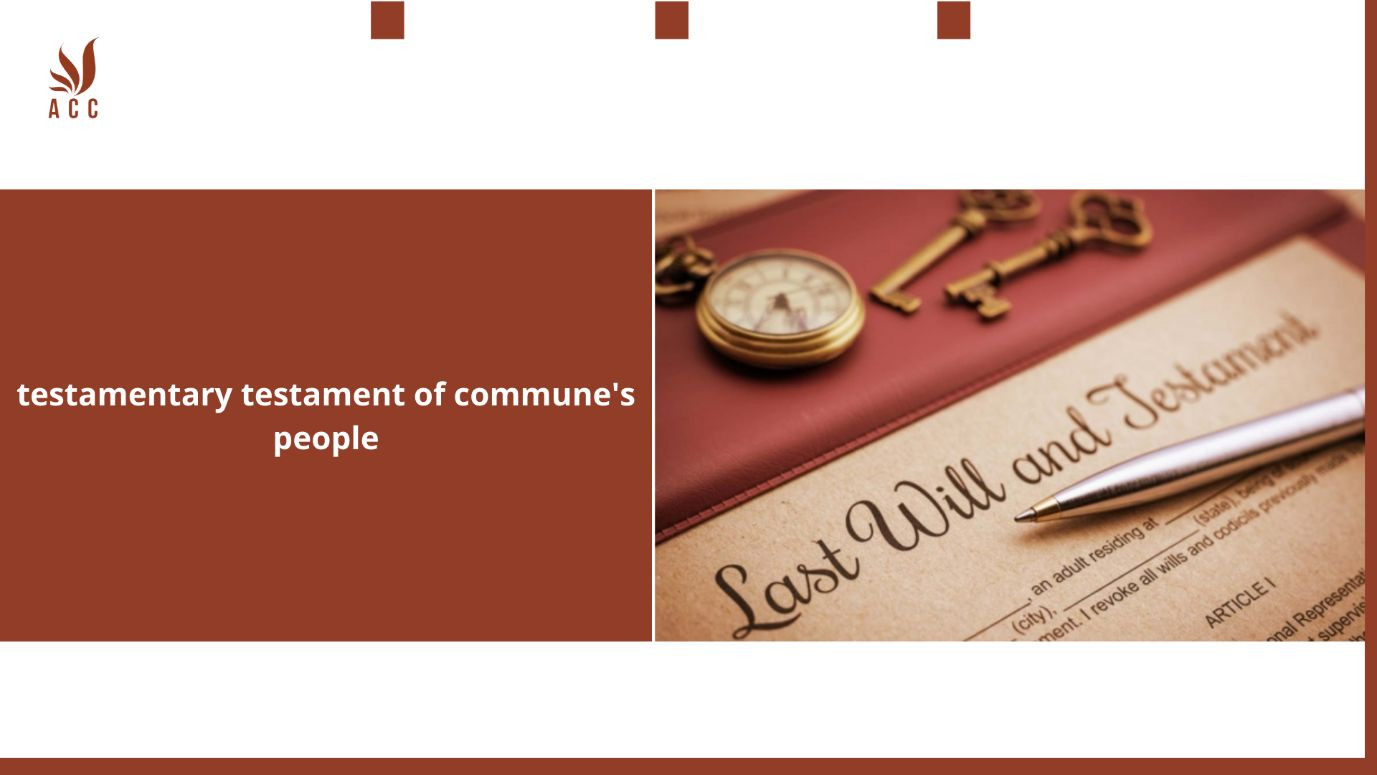Here's an explanation of both concepts:
I. Testamentary Will:
A testamentary will, often simply called a "will," is a legal document created by an individual (the testator) to specify how their assets and property should be distributed upon their death. This document typically outlines the beneficiaries, specific bequests, and other instructions for the estate's distribution. Each person creates their own will to reflect their individual wishes.

II. Communal Will of a Commune's People:
The idea of a communal will involving the entire population of a commune is unusual in the context of modern legal systems. Wills are typically individual documents, and the concept of communal property or collective estate planning is complex. In a commune, residents often have shared ownership of property, and decisions about the use and distribution of communal assets are typically made collectively through communal governance structures.
If you're referring to a situation in which a commune's residents collectively agree on how to distribute communal property or assets, it would likely involve a complex legal and governance process rather than individual testamentary wills. The specific rules and procedures for such arrangements would depend on the laws and regulations governing the commune and the nature of communal property ownership.
III. When using ACC Law Firm's testament, entrepreneurs will receive
When using ACC Law Firm's testament, entrepreneurs will receive professional legal advice and assistance in drafting a comprehensive and legally binding will that reflects their specific business needs and objectives. The testament will ensure the smooth transition of their business assets and help protect their interests and those of their beneficiaries. Additionally, entrepreneurs will have access to ongoing support and guidance from experienced attorneys who specialize in estate planning for entrepreneurs.
IV. Q&A
Q1: What is a testamentary testament, and why might members of a commune need one?
A1: A testamentary testament is a legal document that outlines how a person's assets and possessions should be distributed after their death. In the context of a commune, members may choose to create such a document to ensure that their assets are distributed in accordance with their wishes, whether it's within the commune or to beneficiaries outside the commune.
Q2: Can a member of a commune create a testamentary testament that differs from the commune's collective principles and values?
A2: Yes, individuals in a commune typically have the legal right to create a testamentary testament that reflects their personal wishes, even if those wishes differ from the communal principles and values. However, the testament must adhere to applicable legal requirements, and it may be subject to review or contestation if it contradicts communal rules or legal standards.
Q3: What are some common provisions to include in a testamentary testament for commune members?
A3: Common provisions in a testamentary testament for commune members may include:
- Naming beneficiaries within or outside the commune.
- Identifying specific assets or properties to be distributed.
- Appointing an executor or trustee to oversee the distribution.
- Instructions for handling communal assets or responsibilities.
- Any charitable donations or contributions to communal projects.
- Guardianship arrangements for minor children if applicable.
Q4: How can commune members ensure their testamentary testament is legally valid and enforceable?
A4: To ensure the validity and enforceability of a testamentary testament:
- Consult with an attorney experienced in estate planning to draft the document.
- Make sure it complies with local laws and regulations regarding wills and testaments.
- Clearly express your intentions, beneficiaries, and assets.
- Sign the testament in the presence of witnesses and notarize it if required.
- Keep the document up to date by reviewing and revising it when significant life events occur (e.g., marriage, birth, death).
Nội dung bài viết:






Bình luận